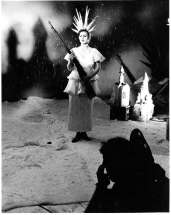Jets junkie? Bleed blue and gold? Do the wave, masochists!
Read this article for free:
or
Already have an account? Log in here »
To continue reading, please subscribe:
Monthly Digital Subscription
$0 for the first 4 weeks*
- Enjoy unlimited reading on winnipegfreepress.com
- Read the E-Edition, our digital replica newspaper
- Access News Break, our award-winning app
- Play interactive puzzles
*No charge for 4 weeks then price increases to the regular rate of $19.00 plus GST every four weeks. Offer available to new and qualified returning subscribers only. Cancel any time.
Monthly Digital Subscription
$4.75/week*
- Enjoy unlimited reading on winnipegfreepress.com
- Read the E-Edition, our digital replica newspaper
- Access News Break, our award-winning app
- Play interactive puzzles
*Billed as $19 plus GST every four weeks. Cancel any time.
To continue reading, please subscribe:
Add Free Press access to your Brandon Sun subscription for only an additional
$1 for the first 4 weeks*
*Your next subscription payment will increase by $1.00 and you will be charged $16.99 plus GST for four weeks. After four weeks, your payment will increase to $23.99 plus GST every four weeks.
Read unlimited articles for free today:
or
Already have an account? Log in here »
Hey there, time traveller!
This article was published 25/07/2018 (2700 days ago), so information in it may no longer be current.
The incredulous headline this week said it all: “Just a few months ago, it was all sunshine.”
That was the top to an insightful piece by Free Press Jets writer Mike McIntyre that noted how quickly all the giddy enthusiasm and whiteouts that surrounded that wild playoff run last spring have been replaced by worries about Jacob Trouba, a looming salary-cap crunch and where the team goes from here.
Good times, we hardly knew ye.
And so it goes for sports fans in this town — and everywhere else, for that matter.
While it is true sports fans in this city have suffered more than most, the simple fact is, fans everywhere suffer more than they celebrate
While it is true sports fans in this city have suffered more than most — the Bombers’ 28-year Grey Cup drought is the longest in the CFL and a pro hockey team in this city hasn’t celebrated a championship since 1979 — the simple fact is, fans everywhere suffer more than they celebrate.
We all know this intuitively; if anything less than a championship for your team at season’s end will bring varying degrees of disappointment, then the mathematics of the equation are inescapable. There are going to be a lot more sad fans than happy ones at the conclusion of every season, whether the subject is the 31-team NHL or the nine-team CFL.
I’ve written about this idea before and, so too, did the late, great Charles Krauthammer of the Washington Post, who put it this way in a column last summer in which he wondered why anyone takes part in such an endeavour:
“In sports, the pleasure of winning is less than the pain of losing. By any Benthamite pleasure/pain calculation, the sum is less than zero. A net negative of suffering.”

But now, thanks to a study by University of Sussex economists Peter Dolton and George MacKerron, we can now put numbers to just how much a losing proposition it is to be a sports fan.
In a 28-page paper for the National Institute of Economic and Social Research titled Is Football A Matter Of Life And Death — Or Is It More Important Than That? the Brit academics found that on average, the sadness fans feel when their team loses is twice the happiness fans feel when their team wins.
Think about what that means for a moment: If your team is perfectly average and wins exactly as often as it loses — a .500 season — you will, by season’s end, have felt twice as sad as you felt happy.
And that’s if you’re the fan of a .500 team. If you were a fan of say, that 2013 Bombers team that went 3-15, well, it’s a wonder there wasn’t a noose hung from every elm in Winnipeg that season.
Dolton and MacKerron came to their conclusion by studying more than three million responses to a happiness-monitoring app and then cross-referencing those results with the dates and times of British soccer matches.Researchers found a win increased a typical fan’s happiness level by about four points, roughly equal to the modest bump those same people reported feeling after listening to music
The app pinged 32,000 people a few times a day, asking them where they were, who they were with and how happy they felt. Because the app generated a baseline happiness level for each respondent, the researchers will able to determine how much those levels changed immediately after a loss or win by the respondent’s local sports team.
In general, the researchers found a win increased a typical fan’s happiness level by about four points, roughly equal to the modest bump those same people reported feeling after listening to music.
But a loss by the local club produced a decline in happiness of roughly eight points for those same fans, which was equal to the way people reported feeling after a long day at work or waiting in a lineup.
Not surprisingly, the effects were even more pronounced in people who had been at the game — fans in attendance reported their happiness increased by three times the rate as those who weren’t after a win, while a loss made fans at the game roughly twice as sad as those who weren’t there.

What’s more, when you factor in that the negative effects of a loss took much longer to wear off than the positive effects of a win, the researchers estimated the pain fans feel when their team loses can be as much as four times, on average, as the joy those same fans get when their team wins — an effect that is, again, even more pronounced for fans at the game.
And so, put it all together and the research points to only one conclusion: that fans really are fanatic, which is to say a little bit crazy, in support of their teams.
Think about it — what other activity in our daily lives would we voluntarily take part in if we knew, for a fact, that it was going to make us a lot sadder than it would make us happy over the long run?
If your daily walk did that to you, you’d switch to cycling. Or find a different route. Or join a gym.

What you wouldn’t do, however, is continue to cheer for the Bombers. Or, for that matter, a Jets team that made you so happy for a fleeting moment only to so quickly fill you with anxiety once again.
And yet here we are.
Why do we keep coming back for more, season after season?
For the same reason we get out of bed every morning and don’t simply succumb in the face of an existence that guarantees we will all inevitably die.
Hope springs eternal — for fans and, more generally, homo sapiens. We live with eternal hope that things will get better — even when the evidence suggests overwhelmingly that it won’t.
“Fans systematically over-estimate the probability of their team winning and never revise and learn from experience”
In their paper, Dolton and McKerron call this phenomenon “systematic bias in estimating the probability of winning.
“Fans systematically over-estimate the probability of their team winning and never revise and learn from experience.”
There’s always next year, in other words. Even when decades go by that suggest — rather overwhelmingly — that this year will end the same as all the others, in disappointment.
And yet, we hope.
It makes us people. It makes a lot of us fans. And it makes us all crazy.
email: paul.wiecek@freepress.mb.ca
Twitter: @PaulWiecek
Is football a matter of life and death?

Paul Wiecek
Reporter (retired)
Paul Wiecek was born and raised in Winnipeg’s North End and delivered the Free Press -- 53 papers, Machray Avenue, between Main and Salter Streets -- long before he was first hired as a Free Press reporter in 1989.
Our newsroom depends on a growing audience of readers to power our journalism. If you are not a paid reader, please consider becoming a subscriber.
Our newsroom depends on its audience of readers to power our journalism. Thank you for your support.










